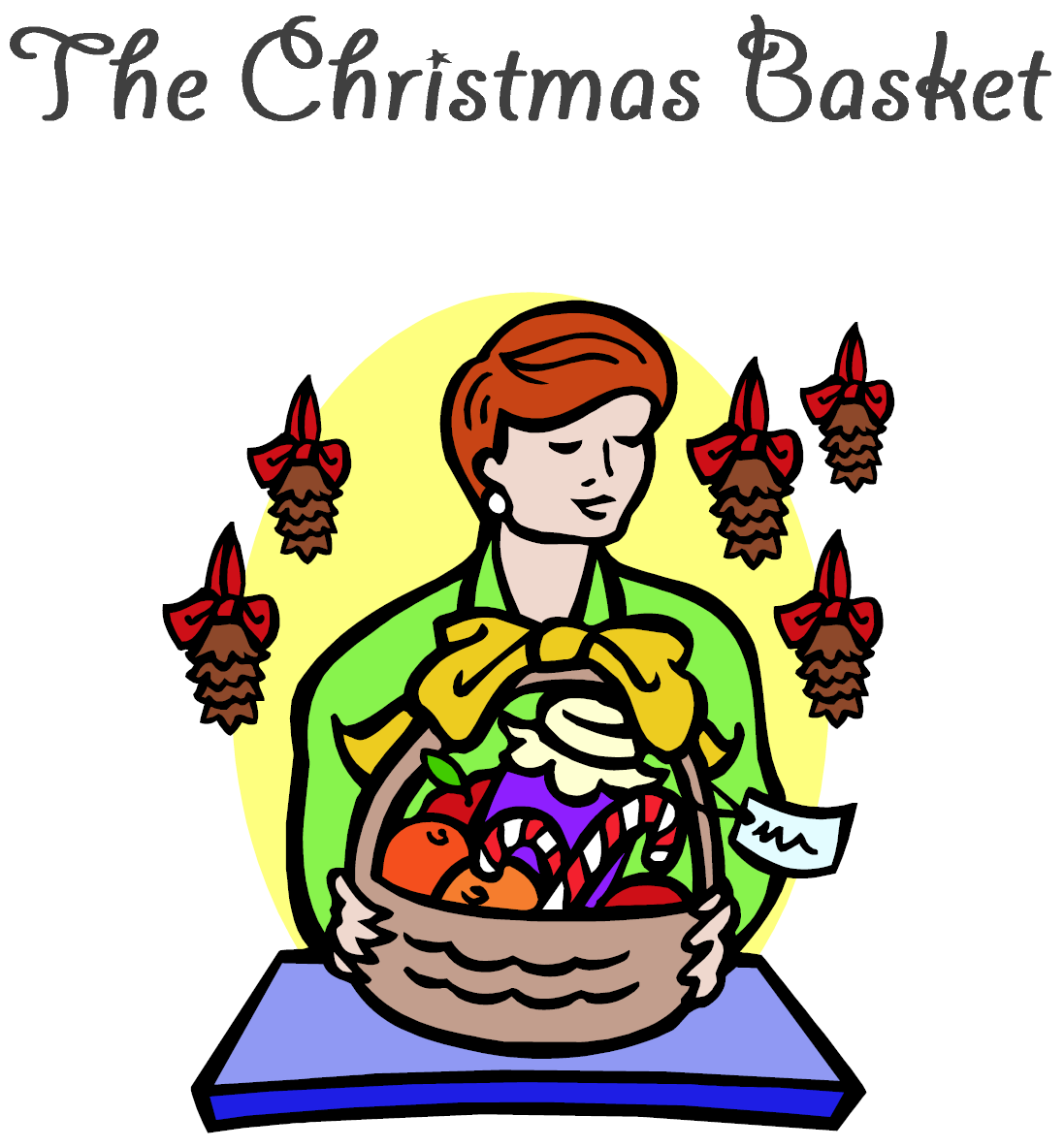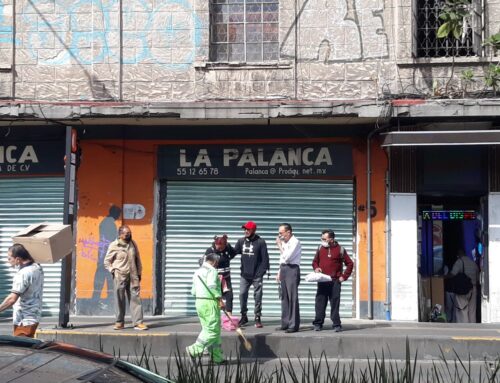The sweet murmurings of children’s voices are reassuring and familiar. Children’s pictures of Santa Claus and stockings made from red construction paper, glue and cotton balls hang on my office door. My small, windowless office is in the back of our school. I turn the key and sit right down, still in my coat. I am the social worker. It’s Christmastime.
There are many little schools like this one, peppering the neighborhoods of the Bronx, Brooklyn and Queens, where so many of the parents are low-income and so many of the children thought to be “at risk.” “At risk” is really an abbreviation for a situation so unpleasant that no one wants to say it. “At risk” makes it that we don’t have to. It really means poor. It really means that the children are at risk for all of the problems that come from being poor. Imagine having to say, “children at risk for malnutrition, learning problems, overcrowding, behavioral problems, dying from exposure in an apartment with no heat, homelessness, fires started by lit candles and defective space heaters….” In so far as “at risk” implies an outcome that has not happened yet, it is a deceptive term, changing the verb tense so that the child’s present and actual state of malnourishment, homelessness, and despair are made to sound like a future possibility that enough middle class interventions, and charity, can prevent. Nothing brings up feelings of wanting to intervene with “at risk” children more than Christmas, a time where music, money, guilt, snow, religion and good intentions form a perfect storm.
My colleague, Roberta, the school psychologist, comes and leans against my doorway. Today, she says, we are going to be asked to suspend our therapy sessions with the kids so as to help the school to put together Christmas baskets for some of their families. There will be a meeting in a few minutes, once the kids are in class, to talk about how it will work.
We’re sitting in the basement, where we have all our meetings. Five of my colleagues are there, including the school psychologist, the occupational therapist, the school’s coordinator, our school nurse. The principal presides. “As you know,” she says, “many of our families are at risk. Many of our families do not have enough money to buy what they need for the Christmas holiday. So I have decided that we can do something about this by putting together Christmas baskets for the neediest of them. Each of the six teachers is going to give us the name of the neediest family in her class. The baskets will be filled with a ham, some canned food, a bag of rice, cookies, and a few other things. We will wrap them up and decorate them with a few ornaments, and give them out next week at theschool Christmas party.” It had all been decided.
“How are we going to get the food for the baskets?” Maria, the school coordinator, wanted to know, since it was likely she was expected to coordinate it.
“At ten today, Frank will drive all of you over to the supermarket in his SUV.” Frank was the speech therapist. “You’ll work in pairs and buy all of the items. Then you’ll stop over at the Kingsbridge Target and find some big baskets. We’ll wrap everything up in the afternoon. We’ll keep the hams in the freezer until the day of the party. No one will do therapy sessions today to give us a chance to get this done.”
“How will we know that the family picked is really one that needs help the most?” I asked.
“Like I said, the teachers will decide,” the principal said.
My colleague, the school psychologist, stood up first when the meeting was over.
“Carajo,” she said.
We piled into Frank’s SUV at one o’clock. The plan got complicated when the principal realized that the school nurse usually helped the teachers serve lunch. Frank and the naturally nervous occupational therapist Karina split off in search of hams. In the enormous supermarket, I felt disoriented. It was not a neighborhood supermarket, small and navigable, but a “food warehouse” just off the Major Deegan Expressway, in the space between two Bronx neighborhoods, belonging really to neither one. The aisles were wide with very few signs, and the ceilings high enough to hold a commercial jet. Merenguemusic blared from speakers and bounced off the concretewalls. It wasn’t heated. It took me twenty minutes to locate the canned vegetables, and we got canned yams and canned spinach. I settled on a low-sodium variety—100 mg instead of 250. In a pathetic attempt at cultural sensitivity, I added six packets of dried beans. Unable to decide on which, I picked pink ones. I tracked down my friend and assigned partner, Roberta, growing irritable in another aisle, trying to use the calming techniques she taught the children on herself. I knew she was thinking about the work on her desk, back at the school. I was about to say something when she interrupted me by finding the canned cranberry sauce. She reached out and threw six cans of it into the shopping cart, and they clattered helplessly against the metal.
“These families are mostly Dominican and Puerto Rican,” she said. Roberta was Puerto Rican herself. “We don’t eat crap out of cans. We would never eat this shit in Puerto Rico.” I had suggested the same, in different words, to the school coordinator, privately after the morning meeting. It was true, she had said, but buying things like fresh vegetables and a bag of fresh cranberries was not practical for us, because we wouldn’t be able to store it before next week’s Christmas party. It was complicated enough that we were going to have to put the hams in at the last minute. The “for us” lingered in my head.
All of us, from the speech therapist turned chauffeur to the psychologist turned cynical shopper managed to find each other at an exit flanked by beer crates piled high on either side, after paying with the cash we’d been given. $600 total. In all, we were in the warehouse one hour and forty minutes. Way past lunchtime, none of us had eaten. We still had to stop at Target to get the baskets. Everyone was tired and worried about the time. The short winter day was evaporating over the Harlem River. So we decided to try the local stores. The largest baskets were way more expensive than the money allotted for. They were pretty, but about $20 each. Then Frank came up with a solution.
We went to the 99 cents store on Fordham Road. We located and bought six plastic “giant” laundry baskets. They weren’t pretty, and unfortunately there were no red or green ones to make them look more Christmas-y. There wasn’t white either, which was at least neutral. We settled on yellow. It was the only color they had.
When we got back to the school, the kids had been dismissed already. The teachers and the principal were in one of the front classrooms, talking about which six families out of53 were the poorest. Someone was suggesting we call each one and ask them their income and go by that. “It’s the only way to know for sure.” Someone else said if the parent knew what it was for, they might lie so they could get a basket of free food. Someone else said we should choose the families with the most kids, to which one teacher objected that that was rewarding having too many kids while poor. Someone said we should only pick single mother families, to assure that we got the poorest in the lot. Given the statistical reality that the poorest families are single mother families, this idea made some sense. Eventually, it was acknowledged that no matter who was chosen, every family in the school was so poor, it didn’t really matter who got picked. A teacher said that we should definitely pick the family of the little girl whose parents were known to have HIV. They were not just poor, the teacher reasoned, but very sick, too. Some nodded.
The principal objected. “They have plenty of money. Did you see the beautiful winter coat she’s been wearing to school?”
The talk went on like this for a while. Finally and somehow, the teachers settled on six families, with only weak objections that petered out by the next day. Who was not a good mother, who was known to clean houses on the side even though she got “welfare,” who was trying to get her kid on disability when he wasn’t disabled, who didn’t dress the kids warmly enough. I ventured to say that that was a point in favor of the mother with HIV, who had somehow made the effort to get her daughter a beautiful and warm coat. No one got it. I was glad that we could move on to packing the baskets. Roberta was angry, I could tell, because whenever she had lost hope in those around her, her intelligent sarcasm would disappear and a resigned silence would take its place.
As it turned out, it didn’t take one day for the Christmas Basket project as the principal had planned. It was nearly 5 o’ clock when we decided we’d have to take it back up tomorrow. So the next day, when we were all back at school, we were again instructed to suspend our therapy sessions for the day.
We lined up the plastic yellow baskets in the back offices on pressed wood tables, along with the canned goods, the boxes of cookies, powdered potatoes, my bags of pink beans and so on. The nurse brought in some tree tinsel she had left over from trimming her tree, so we could decorate the “baskets” a little. The frozen hams would go on top the day we gave the baskets away.
The plan now was to announce the baskets and give them away on the last day of class before Christmas. The principal would do this at the end of the year holiday party for the students and parents. Sometime after the meal, the principal would make her speech and in the process, announce that several families had been chosen to receive special help for the holiday. Then the families would take their baskets home.
I went to see the principal later on in the day. “The baskets are really heavy already, and we don’t even have the hams in them yet,” I said. I told her I was worried that parents, not knowing they’d have to bring home anything this heavy and large, wouldn’t have any way to get the baskets home. We should tell them, even though it would no longer be a surprise, I said. The principal agreed that this might be a problem, but that most people lived a few blocks away. I reminded her that while that was true, they had children with them, and it might be impossible to manage with both. Furthermore, most families lived in walk-ups, and would need help to get the baskets up the stairs. Later, she announced that Frank would remain on call in case one or two families needed a ride. A teacher suggested that if we gave a ride to one family, then every family would expect one. “Well, I think we are doing way too much for them,” the teacher said. “Isn’t it enough they are getting the gift basket? They should work out their own way home.”
There was a small glitch when we were almost done wrapping the baskets: not the best quality plastic was used in their overseas manufacture, and they began to break in spots. We convened to see how to solve this problem. For one, returning the baskets was impossible, for despite their poor quality, we had forced very hard objects into them, rather than clothing, which was not the baskets’ intended use. We’d have a rough time proving our case to the 99 cents store owner. Second, unpacking the baskets would be too time consuming: each of us was now on our third day of working on this good deed, and the kids had missed three days of therapy already. If they missed a fourth day, we’d never catch up.
So we decided to reinforce each basket by wrapping it in plastic wrap before adding the Christmas wrapping paper. That way, the families would be able to see their bounty, and if the basket broke more, the plastic wrap would hold it together long enough to get it home. The occupational therapist ran out of the building with her own money to get some at the supermarket. I was reminded that every solution creates a new problem, and every new problem has, somewhere, a solution.
Roberta and I wrapped up our last one—each team of two people wrapped two baskets—on the carpeted floor of her office. Her objections to the project’s many impositions and cultural incorrectness had finally given way to acceptance. Between handing me pieces of tape, and cursing when the plastic wrap stuck to itself, she joked how all the canned goods were going to end up in the back of kitchen cabinets, to remain there only if things got really bad in the New Year. We discussed the relative weirdness of giving a box of powered potatoes to a people who only tolerate real potatoes when they can’t find another root vegetable: la malanga, la ñame (pronounced “nyame”), and la yuca being way more flavorful than the unimaginative potato.
For the most part, I had given up on talking to my colleagues or my boss about the ethical and practical problems with the basket project. It consumed human resources meant to be spent on existing work and therapy; it did not consider the real needs or preferences of the families. It created unexpected work for them—having to get the things home, having to figure out what to do with it all once it was unpacked; finally, the project cost a lot of money in man hours of six professionals who are paid about $35 an hour (without fringe), times three seven hour days, equals $4,410 in labor, plus the $100 spent on the contents of each basket, the cost of the six baskets ($1.99 cents each) and the gas for Frank’s vehicle. Roberta and I talked about what an incredible help it would have been to instead take that $5,000 and divide it by 53, and give the cash out evenly among all the families, whereupon they could have chosen how to spend the nearly $100 bucks themselves, and bought real potatoes and real cranberries if they’d wanted to. While decorating the baskets with tinsel, I noticed the writing on the box that said, “not safe for children who may be put mouth.” Translation: Toxic to children below three years old. I remembered that one of our cats had gotten sick from chewing tinsel when I was a kid. We all pulled off the tinsel and threw it away.
The occupational therapist ducked out of the festivities right before the principal stood up to lead a prayer and get to the business of the Christmas Baskets. The day of the party had arrived, and the occupational therapist was charged with putting a frozen ham with each basket before the baskets were brought out. Unfortunately, since the baskets were already heavy and wrapped, each ham had to be handed over with a complicated explanation of why it wasn’t included more conveniently in the basket. In any case, the parents were politely asked to pay attention, so that we could announce the surprise. They took their seats with their children beside them, a collection of red, white and green dresses and small dress shirts proliferating on gray metal chairs. The parents balanced paper plates, filled up high with their pot luck Spanish dinner, on their laps.
The principal lowered the music and took the floor,announced our idea to give some extra help to a few families. As I expected, any explanation turned out to be too awkward, raising more questions than it answered, and as she stumbled over her words she realized it too. To say the chosen families needed the help more than the others was to advertise that they were particularly destitute, since everyone in room was poor, including by the way the teachers, who made about $12 an hour. To say the chosen families were being rewarded would be taken to mean we thought they were better parents than the others. Either way, the principal was tongue tied, and I felt her pain, though I’d warned her this would happen.
She abandoned the explanation. As each family was called up to take their basket (and their frozen ham)to weak applause, true to human nature, each reacted in a different way. Some smiled and looked genuinely happy. Some seemed embarrassed, and tried to sit back down right away, but couldn’t, because they had to drag the heavy basket along the floor back to their chair. Flashes went off. Polite but quizzical looks formed on the faces of those parents who it turned out were not getting a basket. One woman who heard her name asked immediately, “Dios mio, how am I going to get this home?” The principal reassured her that Frank would help. Frank quickly put on a smile and looked anxiously at the clock. The weatherman had said snow, and Frank lived in Westchester.
I looked for Roberta. She’d retreated to the back to play with a couple of her regular children, theonly sane people in the room. The pictures would later appear in the newsletter of the social services agency to which our school belonged. The party began to break up as some of the teachers and parents left, blowing kisses, ‘Merrychristmases’ and ‘Dioslebendigas’ into the air. In the background, I noticed some angry voices and looked up. Those who had not gotten a basket had been handed Tupperware and invited to help themselves to the various hot, delicious homemade-by-parents dishes they’d just been served at the party, so that nothing would go to waste. To the amazement of all except maybe Roberta, this caused outrage: the parents who had to lug home the Christmas Baskets were upset that they couldn’t have any of the homemade, non-canned, Spanish delicacies. Rice and beans, dulce de leche, roast pig falling from the bone, and so on. People have killed for less. Even if it had been allowed, the “basket families” could not possibly carry anything else home because of the mammoth baskets they’d been saddled with. An argument ensued between two parents who got a basket and one who didn’t. Tragically, a cup of homemade coquito ended up on the floor when one of them wouldn’t let go of it. Voices called out strident objections. Children absorbed the tension and began to cry. I could only sit and watch, wolfing down my plate of roast pig, rice and beans, lest it be wrested from me. Eventually, an uneasy decorum prevailed, but the true preferences of the people had shattered the good will the whole project was supposed to create.
We went to get our things from our offices, since the school would be closed for the Christmas break. The teachers were mostly gone. I later found Roberta downstairs drinking a soda and cleaning up. I got out some paper towels. We didn’t talk about the Christmas Baskets.
_____________________________
“Well that was nice!” the school nurse said.
I had gone back upstairs to get my coat, and bag. On the way past her office she had called out to me. I stopped in her doorway. I thought of what to say.
“I think that it was a lot of work for not much return. We overworked ourselves. We embarrassed those parents. We left them wondering if we are unfair. We gave them food they wouldn’t buy themselves, given the chance.” I considered what to say next, knowing what the reply might be. “We could have done more for them, and saved a lot of trouble, if we had just handed them the money and let them shop for themselves.”
“That wouldn’t work,” the nurse said. “How do you know they wouldn’t have spent it on alcohol or something they don’t really need?”
It turned out to be snowing heavily, a real white Christmas snow. It turned out that five of the baskets needed a ride home. Frank did three and the nervous and dedicated occupational therapist did two. Frank told me a few days later that he and his wife argued that night—he’d arrived home two hours late for their own family gathering because he’d helped two of the three mothers carry their baskets up the stairs, then got caught in traffic on the Major Deegan. What else could he do? When he got home and got his own bags and his kids’ gifts out of the back seat, he found a frozen ham defrosting on the seat, left behind in the confusion.
One gracious mother, standing on the dark street in front of the school with me,had assured us she could get the basket home herself—“I live only one block away,” she insisted. Her voice was sad, betrayed her tired smile. She directed her toddler to toddle beside her, which he did. My hand reached out to help her pull but she insisted, “I got it!” and turned away from me, turned her body against the snow and wind, and, clasping wet, copper hands on the edges, she dragged the basket up the steep block, bent over it as over a dead body. The green and red wrapping paper we’d put over the plastic tore and fell away as the Christmas Basket was dragged over the snow.







Leave A Comment